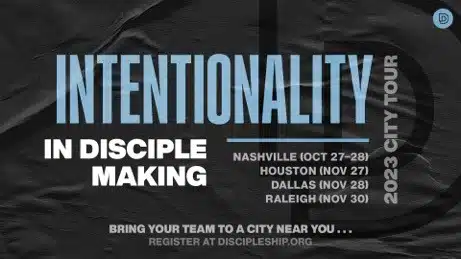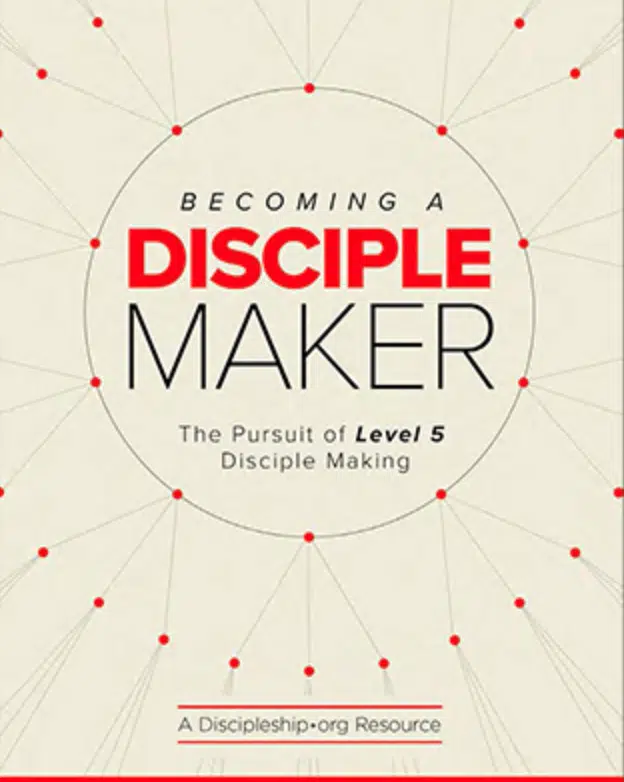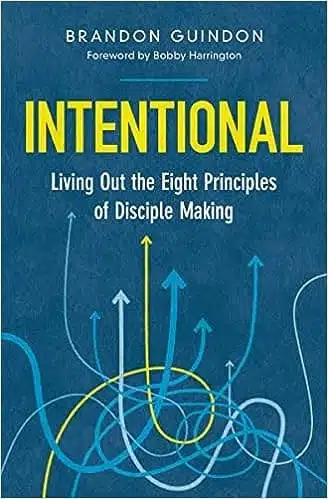THE CURE FOR THE CRAZY BUSY LIFE

All of us have had the experience of asking an acquaintance, “How are you doing?” The response will often come back as busy, too busy, or, recently, crazy busy! What’s going on in our culture that, in spite of all manner of time saving devices we still find ourselves overscheduled, overcommitted, and ready to snap? Let’s survey some of the reasons behind this phenomenon.
CULTURE
Never in history has there been so many things to distract us. If you’re doing things that matter most, that’s great. But if busyness keeps you from doing what matters most, then being busy is a problem!
SELF-IMPORTANCE
This can often motivate over-commitment. I need to appear busy because it feeds my sense of self-importance. Along with the Apostles Creed, I need to confess the John the Baptist Creed… “I am not the Christ” (John 1:20 KJV). Just because a cause is worthy does not mean God expects you to engage in it.
PEOPLE PLEASING
Are you seeking approval from others more than God? Solomon said, “Fearing people is a dangerous trap, but whoever trusts in the Lord is kept safe” (Proverbs 29:25 NLT). Ed Welsh wrote an excellent book, titled When People Are Big and God is Small, to address the crippling issue of peer pressure from a biblical perspective. The title captures the danger of what happens when we value man’s approval more than God’s.
DIVERSION
Sometimes we use busyness as an excuse, or a convenient distraction, to keep from facing problems at home. A friend in ministry was staying at the office each night and I couldn’t figure why … until his marriage blew up!
FAILURE TO PLAN AND PRIORITIZE
I once made a list of things I thought God wanted me to do, things I wanted to do, but wasn’t getting done. When I realized how much time each week I spent watching news shows on television that simply recycled the same stories each hour, I was stunned. The problem was not too much to do, but too much of the things God had not called me to do.
I’m not advocating laziness. Jesus was busy and Christians should be busy, but busy doing the right things—nurturing our relationships with spouse and kids, representing God in the workplace, making disciples and reaching out to those in need. We need to distinguish between the self-imposed crazy busy lifestyle and the Spirit-driven, faithful, and fruitful lifestyle. The good news is that the faithful and fruitful life is also a deeply satisfying and restful life!
Here’s Jesus’ cure to the crazy busy life.
“Come to me, all you who are weary and burdened and I will give you rest. Take my yoke upon you and learn from me, for I am gentle and humble in heart and you will find rest for your soul. For my yoke is easy and my burden is light.”
Matthew 11:28-30 NIV
Note the target audience is described as “weary and burdened” or, as one writer paraphrased it, “overscheduled, overcommitted and ready to snap.” Jesus’ words seem perfectly suited for those trapped in a crazy busy lifestyle.
Note too, the double invitation or command. First, we are invited to come to Jesus but not to stop there. We are to come to Jesus and to learn from Jesus. The implied suggestion is that Jesus will teach us what we need to know, what is truly important, what is secondary, and what unhealthy dynamics might be driving our frenetic lifestyle.
Note, finally, the promise, “I will give you rest [and] you will find rest for your soul. For my yoke is easy and my burden is light.”
Jesus is saying that the cure to the crazy busy life is to be found in relationship to him. Let me show you what I mean through an overarching theology and a practical strategy.
It was one of those odd days. I had a breakfast appointment with a small group leader who didn’t show up. Then, I had a lunch appointment with a staff member who had to reschedule. Finally, an afternoon appointment got canceled. I started feeling like no one wanted to be with me!
But, this got me thinking about how God feels when we don’t show up. This really goes to the heart of the biblical story. God wants to be “with us.” In fact, scholars point to this as a unifying theme of Scripture. God’s relentless pursuit to be “with us” is the central story from Genesis to Revelation.1
God did not create the human race because he was lonely. He was in perfect, loving community as Father, Son, and Holy Spirit. God created the human race to expand the circle of his love. He walked with Adam and Eve in the Garden because he wanted to be “with them.” The Fall was not about losing the perfect paradise of Eden but about losing the presence of God. As you move through Scripture you see the constant refrain—God was with Abraham. God was with Joseph. God was with Moses. God was with David. God was with Ruth. The “with God life” is on nearly every page of the Bible.
He chose the nation of Israel and said, “I will be your God and you will be my people” (Exodus 6:7). In other words, “I want to be with you.” God commands them to build a tabernacle and, later, a temple. Why? As visual reminders that he wanted to be “with them.”
One day God punches a hole in the wall of the universe and a baby is born. We’re told, “And they will call him Immanuel—which means ‘God with us’” (Matthew 1:23).
Before his death and resurrection Jesus promises his disciples, “I will ask the Father, and he will give you another Counselor to be with you forever” (John 14:16 CSB).
The final chapter of the biblical story is all about the “with God” life. “I heard a loud voice from the throne saying, ‘Now the dwelling of God is with men and he will be with them’” (Revelation 21:3-4).
Over the centuries, every once in a while, a follower of Jesus gets a vision of this “with God” life. Centuries ago. an 18-year-old named Nicolas Herman, an uneducated household servant from a poor family got converted, looking at a tree (thinking God must have made it). He goes into a monastery, spends his life as a kitchen dishwasher, but devotes his life to being with God. He is known as Brother Lawrence and when he died they gathered some of his letters and turned them into the 17th century devotional classic The Practice of the Presence of God. Next to the Bible, it is perhaps the most widely read book in history.2
Brother Lawrence helps us to flip the conventional paradigm from a compartmentalized 15-30 minute quiet time each day (I check off my “to do” list) to an interactive conversation with God that permeates the whole of my day. I learn to develop spiritual practices that turn my heart back to God and reawaken me to the God who is always present. It takes a lifetime of practice but in the process you discover a deep intimacy with God, “rest for your soul,” and break the cycle of the crazy busy life!
Let’s listen to Jesus’ words one more time. This time from The Message:
“Are you tired? Worn out? Burned out on religion? Come to me. Get away with me and you’ll recover your life. I’ll show you how to take a real rest. Walk with me and work with me – watch how I do it. Learn the unforced rhythms of grace. I won’t lay anything heavy or ill-fitting on you. Keep company with me and you’ll learn to live freely and lightly.”
Matthew 11:28-30
1 Richard Foster (for the General Editors). The With-God Life: A General Introduction to the Renovare Spiritual Formation Bible (NRSV). Harper: San Francisco: 2005, xxv – xxxvi
2 Richard Foster, Dallas Willard, Phyllis Tickle and Richard Rohr, 25 Books Every Christian Should Read: The Practice of the Presence of God, Brother Lawrence, Renovare, Harper One: 2011, pgs. 203-211.
This post originally appeared at: The Cure for the Crazy Busy Life — The Bonhoeffer Project
Because of the importance of intentionality in disciple making, we at Discipleship.org are going to emphasize this skill set and mindset over the next four months. Please join with us and seek to share understanding, insight, and practical tools so that you can become skilled at intentionality in relational disciple making and you can help those on your team or in your leadership group to do the same. There are four ways in which we are emphasizing intentionality to help you in the next four months.
- Discipleship.org City Tour Forums – our four City Tour Forums are designed to help you and your team both understand and develop an intentionality posture. The tour is comprised of one day, high impact forums where there will be teaching and round table discussions. Every attendee also gets a copy of Brandon Guindon’s new book, Intentional: Living Out the Eight Principles of Disciple Making.
Click the image below for more information.

Take the FREE Individual Disciple Maker Assessment – we designed this assessment with a team of national and international disciple making leaders to help each individual be able to evaluate their disciple making mindset and skill. Just by taking this assessment, you will gain an appreciation for the value of intentionality, along with a sense of how you can increase your own level of intentionality. Click the image below to take the assessment.

- Read the short FREE book, Becoming a Disciple Maker: The Pursuit of Level Five Disciple Making – Bobby wrote this short eBook with statistician Greg Wiens to help you understand the mathematical and practical impact of one person’s disciple making efforts and skills.
Click the image below to download this free eBook.

- Read Brandon Guindon’s book, Intentional: Living Out the Eight Principles of Disciple Making – Brandon wrote this Discipleship.org book and Zondervan is publishing, because the understanding and practice of disciple making is so crucial. Every attendee at each of our City Tour events (Nashville, Houston, Dallas and Raleigh), as mentioned above, will receive a FREE copy of Brandon Guindon’s book.
Click the image below to order Brandon Guindon’s book from Amazon.com.
Please join with us in this quest to better understand and practice intentionality. It will help us all to become more and more like Jesus, the world greatest disciple maker.

If you have enjoyed reading this, please consider joining our email list!











